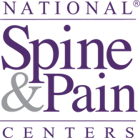How Smoking Slows Down Healing After An Injury
Smoking harms nearly every organ in the human body. It causes heart disease, stroke, lung cancer, and diabetes.
Yet, many people don’t know that smoking also interferes with healing. If you are recovering from an injury, a surgery, or a painful back condition, it’s important to know the dangers of smoking.
The Dangers of Nicotine
Nicotine is the main component in cigarettes, cigars, and even in the newer electronic cigarettes (e-cigarettes) used for vaping. Besides being highly addictive, nicotine decreases nourishment to injured areas (a broken bone, a torn ligament, a wound).
Nicotine effects on your body:
- Nicotine narrows the small blood vessels that normally bring oxygen, nutrients, and healing factors to your injured area. This slows down healing and may extend the duration of your pain.
- Nicotine causes the platelets (important components in your blood) to clump and form clots. Clots block the small blood vessels that carry blood and oxygen to injured tissues, thus interfering with healing in an injured area.
- Nicotine also raises your blood pressure and spikes your adrenaline, which increases your risk for a heart attack.
The Dangers of Carbon Monoxide and Other Toxins
Nicotine is not the only peril when it comes to smoking. Traditional cigarettes and cigars contain carbon monoxide (CO), tar, and other toxic substances. Of these, CO is especially harmful.
CO effects on your body:
- CO travels in the blood where it enters your red blood cells and binds to hemoglobin. It interferes with the amount of oxygen that reaches vital organs like the brain, heart, and injured tissues that need to heal.
“I Don’t Smoke Cigarettes - I Just Vape”
Most e-cigarettes contain nicotine and can slow down healing, just like regular cigarettes do. There are many unknowns about the chemicals found in e-cigarette vapor. Recent data links e-cigarettes to chronic lung disease and asthma. Additionally, the nicotine from e-cigarettes can harm brain development in adolescents.
According to some studies, e-cigarettes do not carry the same risk for inhalation of carbon monoxide as regular cigarettes and cigars do. However, e-cigarettes are by no means “safe”. Vaping, just like conventional cigarette smoking, creates addiction and leads to withdrawal symptoms in people who try to quit.
Injuries & Smoking
The first studies to focus on the harmful effects of smoking on healing have been in the fields of plastic surgery and dermatology. People who had reconstructive (face/breast) surgeries were found to heal slower than non-smokers.
Recent research shows that smoking has other far-reaching effects. It slows healing after many common injuries:
- Bone fractures. Smoking increases your risk for vertebral (spine), forearm, and hip fractures. Smokers have higher rates of bone infections and nonunions (bone ends fail to fuse together after a fracture).
- Osteoporosis. Smoking decreases bone density, increasing the risk for osteoporosis and its complications: a hunched back, fractures of the spine/hips/wrists.
- Muscle (myofascial) pain. Muscle pain appears after many injuries and is a common complaint in chronic conditions like fibromyalgia. Smoking impairs blood flow to the muscles and can interfere with the removal of lactic acid, leading to prolonged muscle pain.
- Herniated discs. Smoking leads to a narrowing of the capillaries (small blood vessels) surrounding the spinal discs. It causes a decrease in oxygen and glucose levels in the center of the disc and may cause disc degeneration.
- Wounds. Smokers have more trouble recovering from surgeries. There is a greater risk for wound infections, failed skin grafts, scarring, and torn stitches.
- Recovery from back surgery. A review that followed 426 smokers for 2 years after lumbar spinal fusion, showed that smoking interfered with bone healing after surgery and decreased overall patient satisfaction.
What You Can Do To Heal Faster
There are several things you can do to heal faster after an injury:
- Quit smoking. Click here, if you need help.
- Seek help from your pain specialist. Smoke cessation used alongside treatments from your pain specialist can speed your recovery.
- Improve your diet. Eat foods rich in Vitamin C, Vitamin D, and Calcium.
- Exercise. It improves blood flow to injured tissues.
Before you pursue any treatment, we strongly advise you to schedule an appointment with a pain management specialist. It’s important to determine the best course of treatment for each patient, including what additional therapies may be safe and effective for each condition. Schedule an appointment button

